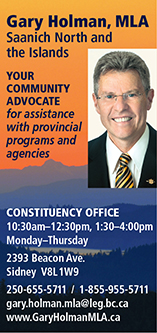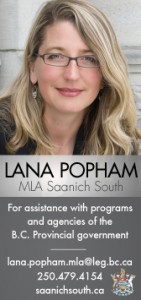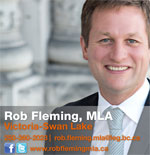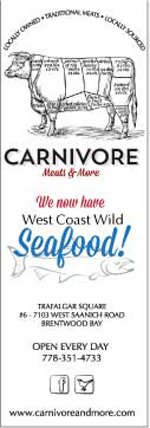Extraordinary Times
…might just require Extraordinary Civic Duty
by Michele Murphy
“In adverse circumstances actions that might have been rejected under other circumstances may become the best choice.” ~unknown
In ordinary times one’s civic duty is, at a minimum, to make an informed decision about who to vote for. And then, come election day, vote. Many democratically active citizens take further steps by donating to the local candidate and party of their choice, or volunteer their time to help get their local candidate elected. This is representative democracy, and in a healthy democracy this creates a government that is generally representative of the values and visions of its citizens.
But are the outcomes of Canadian elections truly representative of the values and visions of its citizens – or even its voters? Is simply voting enough to ensure that they are? Are these ordinary times?
Fair Vote Canada, Leadnow, Dogwood Initiative, Strategicvoting.ca, and Strategicdonation.com all say a resounding NO, it is not, they are not, and are asking Canadians to campaign and vote strategically this election, in order to bring in a government that will change our unfair electoral system.
Hisham Abdel-Rahman of Strategicvoting.ca says, “In the Canadian political discourse, the Conservatives won [the 2011] election with 37% of the vote while the other three progressive parties (NDP, Green and Liberal) shared 63% of the vote and lost the election.”
Leadnow, a progressive independent advocacy organization’s website, says, that the first-past-the-post voting system splits the vote and distorts democracy. When asking their community for direction on their campaign focus, Leadnow’s elections campaign manager Amara Possian told Common Ground that, “Canadians were tired of our broken, distorted democracy in which a majority of voters can vote for change and still see Stephen Harper win 100% of the power with thirty-something percent of the vote.”
So what’s the best strategy for changing the system?
Fair Vote Canada asks us to make 2015 the last unfair election, calling on Canadians to vote for a candidate who supports proportional presentation. Simple. But how do we ensure that a government that would make these needed changes gets into power – while we are still voting with the antiquated system that we have now?
A growing number of progressive – or at least non-Conservative – organizations are suggesting that research and strategy are the work-around to our problematic electoral system. Frequent, local polling that informs strategic donating, campaigning, candidate withdrawal, and voting are all part of the extraordinary measures that are being proposed as a way to elect a government that more accurately reflects the values and visions of Canadians.
Traditionally, publicly released research on the progress of election campaigns is through media-commissioned polling. Continual polling is expensive and so is limited to national, provincial, and in rare cases, regional polling. National polls use a sample size of as little as 2,400 people, or as many as 7,000. And even at the top end, national polling can’t drill down to the kind of local detail that strategic voters need to make their ballot box entries count.
This election is different. Both Leadnow and local pipeline and democracy activists Dogwood Initiative have been championing local polling like never before. They’re focusing on ridings where they feel they can make the most difference. Leadnow has identified 72 swing ridings where voters can cast their ballots strategically to ensure that the Conservatives do not return to power. Dogwood is commissioning research on seven.
But there’s more that we can do to make progressive change than just a well-placed check-mark. Strategic donating and campaigning are also being suggested.
Leadnow’s ‘Vote Together’ campaign focuses on 31 ridings up from just 13 in August, with over 70,000 people (and rising) pledging to vote strategically. It has teams on the ground in 12 ridings across the country and they promise to conduct riding-specific research in any riding in which 500 or more people pledge to vote strategically based on the findings of that research.
Dogwood Initiative’s ask is not necessarily strategic voting, but voting for change. The new riding of Esquimalt-Saanich-Sooke is one to watch, according to Dogwood. Incumbent New Democratic Party (NDP) Member of Parliament Randall Garrison still holds the lead, but the recent gains that the Conservatives are enjoying at the national level are being seen at the local level as well, with the Conservatives, Liberals, and Greens in a three-way tie for second place.
The riding of Courtenay-Alberni is another new riding that, according to Dogwood-commissioned polling, has NDP candidate Gord John seeing a slight dip in support with second-place Conservative and sitting MP John Duncan coming within six points. In this riding, being strategic could make the difference between a progressive win and a Conservative one. Dogwood will be actively campaigning in this riding.
Strategicdonation.com is the non-partisan effort of Mitch Anderson. He suggests that while a vote for the right candidate is fine, only 15% of the country live in ridings where changing our vote would have any chance of making a difference. He says that money is king in elections, and the Conservative Party of Canada’s war chest is more than the NDP and the Liberal’s combined. Add to that the longest, most expensive election in the past 100 years – and you have the progressive nightmare. Using projections posted by ThreeHundredEight.com, Anderson details 65 ridings where he feels individual donations will make a difference in this election. He says, “While you can’t send them your vote – you can send them your money.” He’s included Courtenay-Alberni as one of those ridings where your money could make the difference.
Tyee founding editor David Beers took the strategy one giant step further asking “no-chance” candidates running against the Conservatives to sign a Canada First Pledge committing to dropping out of the race on or before the deadline for having a name removed from the ballot.
Strategicvoting.ca’s goal is simply to elect as many progressive MPs as possible through the use of strategic voting. Founder Abdel-Rahman claims that 128 districts will change the outcome of this election, including 65 identified swing ridings. The website offers analysis of all 338 ridings and suggests a candidate in each riding for your strategic voting consideration. “In a lot of ridings, I think people think there is no way a progressive candidate can win, so they don’t vote,” says Abdel-Rahman. “But I’m hoping that if enough people go out, surprises can happen.”
Not everyone agrees strategic voting and campaigning are the best choices, adverse circumstances or not. Many don’t like to be told what to do. Many believe that it just doesn’t work. CUPE National president Paul Moist told the Huffington Post, “At best, [strategic voting] is a guessing game that tends to favour the Liberal Party and, in many cases, the Conservative Party by preventing people from voting for the NDP.”
In a 2008 interview with the Toronto Star, Green Party leader Elizabeth May urged Canadians to do all they can to throw Prime Minister Stephen Harper out of office. She even suggested they shouldn’t vote Green if another candidate had a better chance of defeating a Conservative. But May is now advising her video audience to “Vote for what you want.”
Experts like Richard Johnston, a UBC political science professor, say this type of strategic voting has had little impact on past elections because voters need strong signals on who they should back. “In the past, when there hasn’t been such signalling, people have tended to follow the trends in national polls,” said Johnston.
This election, through the efforts of Leadnow and Dogwood Initiative, much of the electorate will have access to current local signalling on who to back in their own ridings. “It’s the first time that anyone has done anything of this scale, with this kind of (polling) information and with this kind of volunteer capacity to get out the vote,” Leadnow’s Possian told Reuter’s.
The options seem to be simple: stick with your riding, vote with your heart, and hope for the best. Or – think big-picture, long-term, donate to, and volunteer for ridings that,with your help, will see one less Conservative be elected come October 20th. And vote strategically.
If successful, this will be the last election that this will need to happen.











